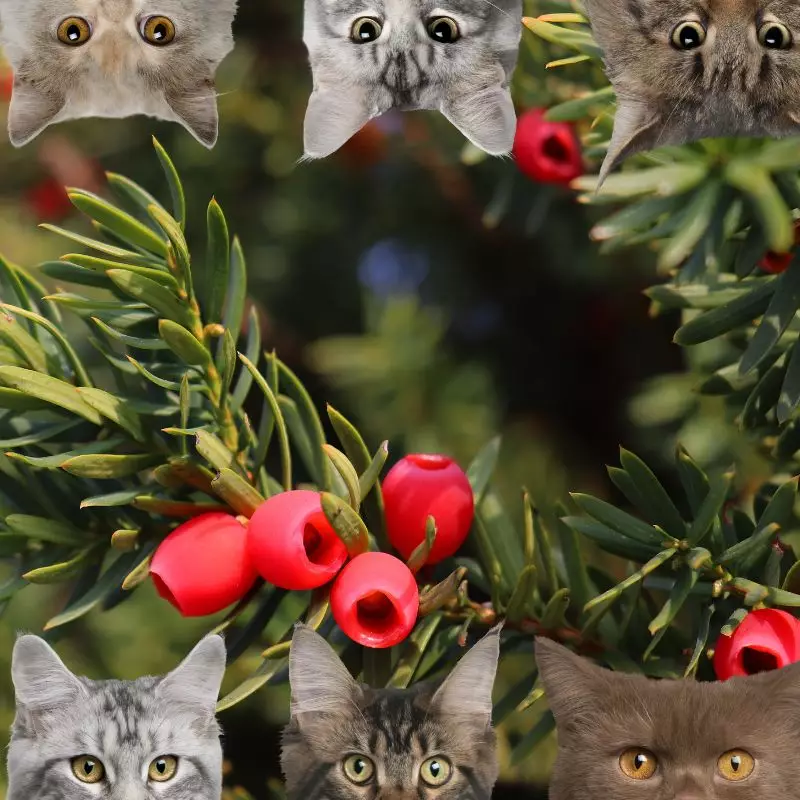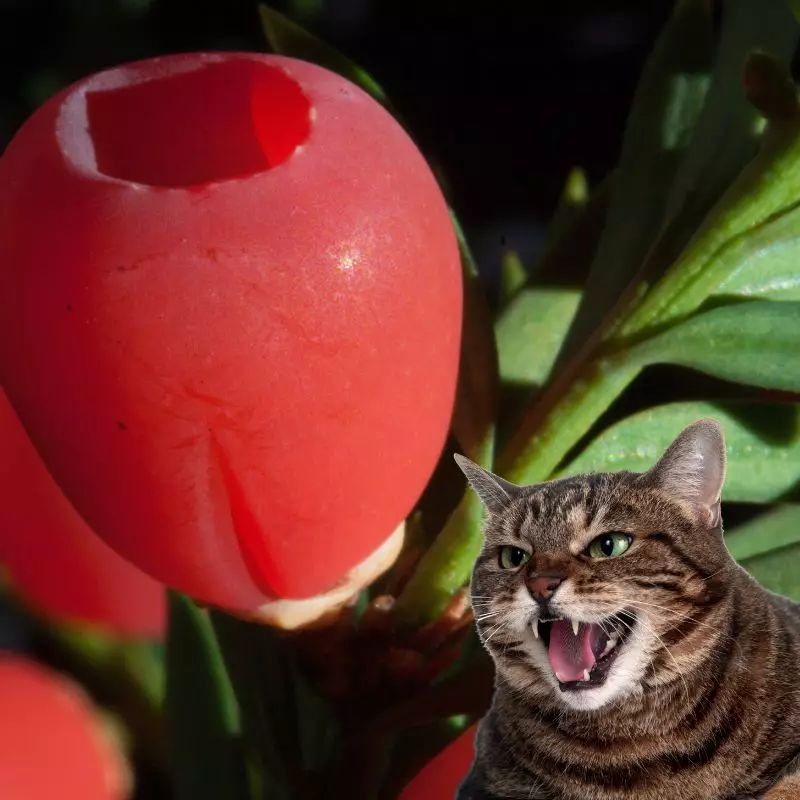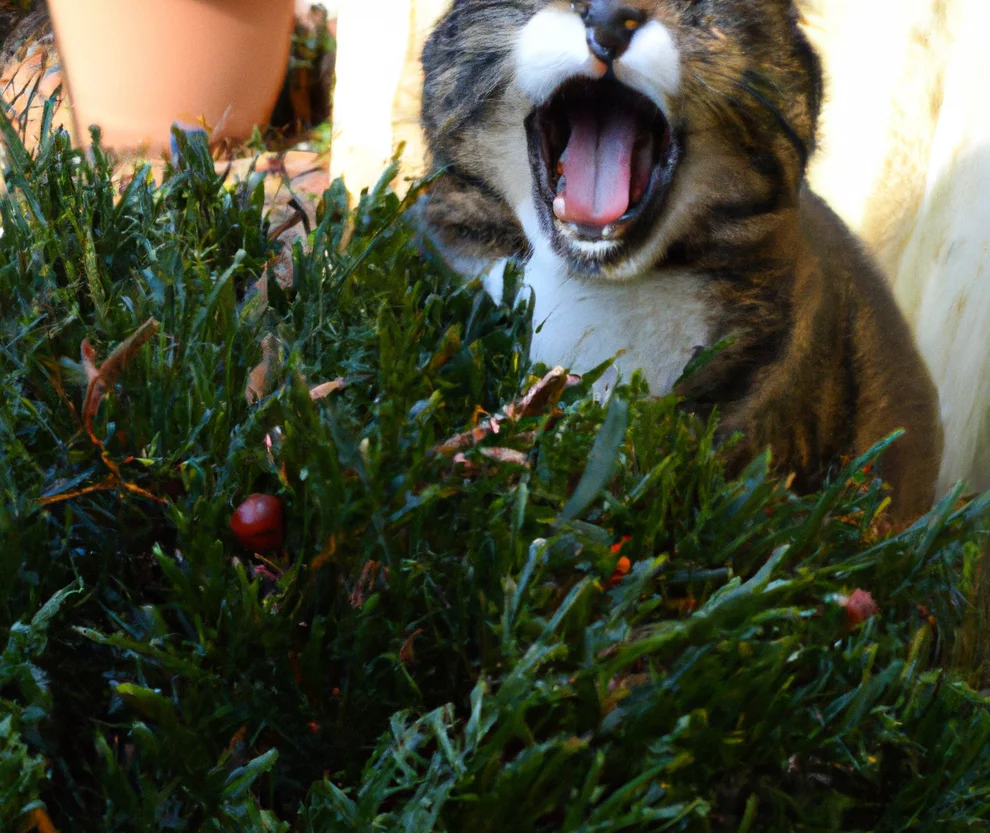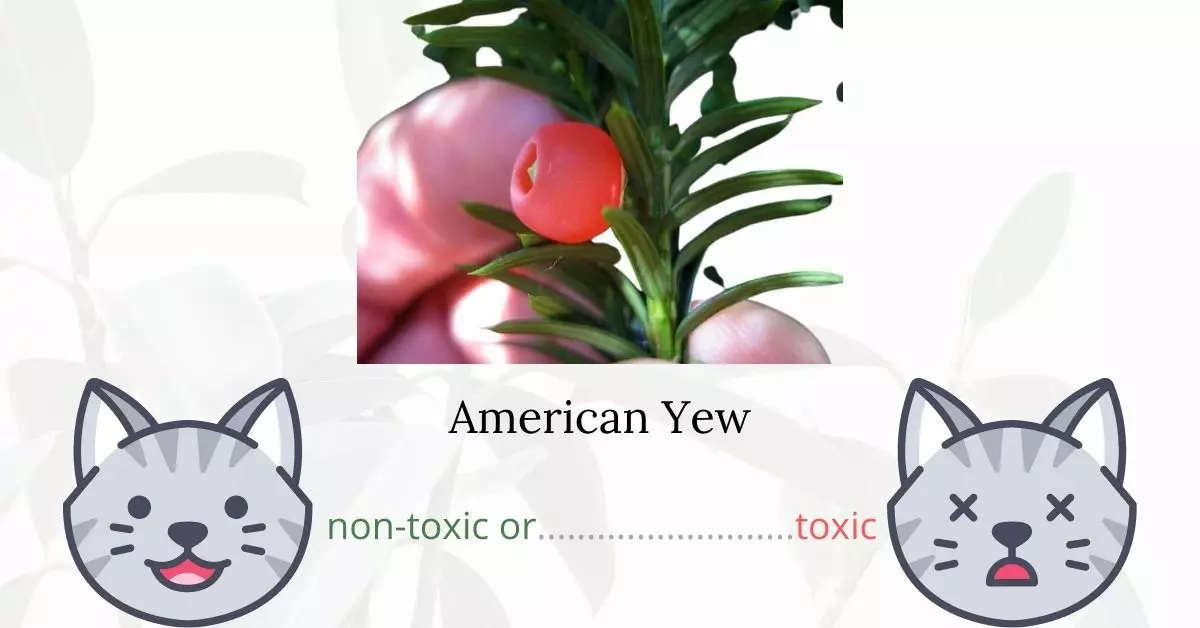Yes, American Yew, also known as Canada yew, dwarf yew, ground hemlock, or creeping hemlock, is toxic to cats. The plant contains a harmful substance called taxine, which is found in all parts of the yew, but is most concentrated in the seeds. If ingested, it can lead to tremors, difficulty breathing, vomiting, and even sudden death from acute heart failure in felines. If you suspect your cat has consumed any part of the yew, seek veterinary attention immediately.
This article has been composed in collaboration with a team of experienced DVMs (doctors of veterinary medicine). Through their invaluable insights and contributions, we ensure that our readers receive accurate and current information about the potential risks associated with various plants, specifically the American Yew in this instance. Additionally, we have cross-referenced our findings with high-authority websites such as ASPCA and PetMD to further ensure the accuracy of the information presented.
Clinical Signs of American Yew Poisoning in Cats

When a cat comes into contact with, smells, or ingests the American Yew plant, it can manifest a range of concerning clinical signs due to the toxic substance taxine present in the plant. Understanding these signs and the underlying reasons for their occurrence is crucial in promptly recognizing a potential poisoning incident:
- Drooling excessively: The immediate irritation of the cat’s oral mucous membranes by the taxine can result in excessive salivation or drooling. This is often one of the earliest signs indicating that the cat has come into contact with a harmful substance.
- Vomiting: Ingesting the yew can irritate the cat’s stomach lining, leading to nausea and subsequent vomiting. This is the body’s natural response in an attempt to expel the ingested toxin.
- Breathing problems: Taxine can interfere with the cat’s respiratory system, leading to difficulty in breathing. This could be due to the toxin affecting the muscles involved in respiration or causing inflammation in the airways.
- Dilated pupils: The neurotoxic effects of taxine can result in pupils that are unusually dilated, indicating a potential disturbance in the cat’s nervous system.
- Weakness: As the toxin affects the cat’s system, generalized weakness can set in. This is due to the body’s response to the harmful effects of the toxin and potential reduced oxygen levels as a result of breathing difficulties.
- Tremors or seizures: These are indications of severe neurotoxicity. Taxine can cause disturbances in the cat’s nervous system, leading to muscle tremors or full-blown seizures.
- Loss of consciousness: In extreme cases, the cumulative effects of the toxin can depress the central nervous system to a point where the cat loses consciousness, which could be a prelude to more severe outcomes like heart failure.
If you observe any of these clinical signs in your cat, seeking immediate veterinary care is of utmost importance. Even if you are unsure about the potential cause of these symptoms, a veterinarian will be equipped to detect traces of taxine and yew in the cat’s system, especially after examining the stomach contents.
First Aid and Treatment of American Yew Poisoning in Cats

Treatment for critical conditions like American yew poisoning must begin as soon as possible after a diagnosis to prevent it from progressing to grave condition. The cat may need to be put on a ventilator and given IV fluids to avoid dehydration and electrolyte imbalance.
The usual treatment will be given to the cat suffering from American yew poisoning such as
(1) induction of vomit, to remove the remaining parts of the American yew in the cat’s system, (2) gastric lavage, which is a process to wash the cat’s stomach cavity, and (3) administering activated charcoal, to absorb and pass out any residue of toxins in the cat’s system. After treatment, the vet will most likely require to leave the cat in his care so he can closely monitor the cat’s condition, particularly the heart.
Recovery of American Yew Poisoning in Cats

The earlier your cat receives medical treatment, as with most poisoning situations, the more likely he is to recover. Ensure your cat’s hydration once you get home to continue clearing out his stomach. The vet may also recommend some changes in your cat’s diet as he or she is in recovery period.
Prevention of Amercian Yew Poisoning in Cats
Cats who are always outdoors are at more risk of exposure to American yews. It is better to make them busy indoors and maintain their healthy condition by providing sufficient supply of food and water. You can also try building fences and putting nets around your home to prevent them from wandering away
If you love plants but have cats at home, check out these lists:





